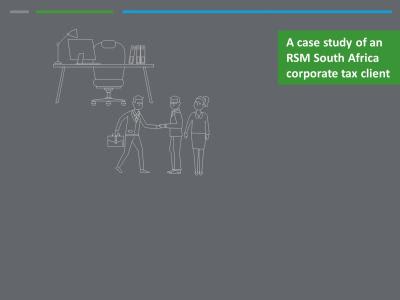Tax considerations for a new business owner
Start-ups either evolve from ideas nurtured by a step-by-step guide, or hobbies that unexpectedly generate fast growing income. Whether an entrepreneur implements a plan from inception or a hobbyist is taken by surprise, it is uncommon practice for business owners to consider tax implications at the beginning of the life cycle of a business. While factors such as market research, a business plan, source of funds, a location, a business name, the structure and registration are fundamental, tax should also form part of the planning stages of a business. The widespread association of tax with profits however tends to result in the delay of tax planning, until the growth and likelihood of success of a business is eminent.
Cash flow is a key component of a business, and has a significant impact on the success of a start-up company. As the saying goes, “cash flow is the blood that keeps the heart of the kingdom pumping” and if not incorporated into budgeting, tax could negatively affect the livelihood of a growing business.
Listed below are taxes, which are or may become applicable to a start-up company:
- Turnover Tax
- Small Business Tax
- Corporate Income Tax
- Provisional Tax
- Capital Gains Tax (CGT)
- Value Added Tax (VAT)
- Skills Development Levy (SDL)
- Pay as you earn (PAYE)
- Unemployment Insurance Fund (UIF)
- Dividends Tax
National Treasury has developed tax incentive policies, and these are important to consider at the planning stages of setting up a business in order to save costs. Turnover Tax and Small Business Tax are examples of incentive policies available to small, micro and medium enterprises, and do lower the tax and administrative burden of the business. Forecasts of revenue and expenditure could be used to predict the timing of thresholds being met, such as compulsory registration for VAT levied at a rate of 15% when supplies exceed R1million. In addition, when an employer’s total remuneration paid to all its employees exceeds R500 000, registration for SDL is compulsory and levied at a rate of 1%. With insight into the timing and extent of the tax implications of running a business, budgeting for cash flows arising from tax becomes practical.
In conclusion, when starting a business tax planning is fundamental and adds value to the growth and success of a business.
Cynthia Gatsi
Consultant: Tax & Advisory, Cape Town




